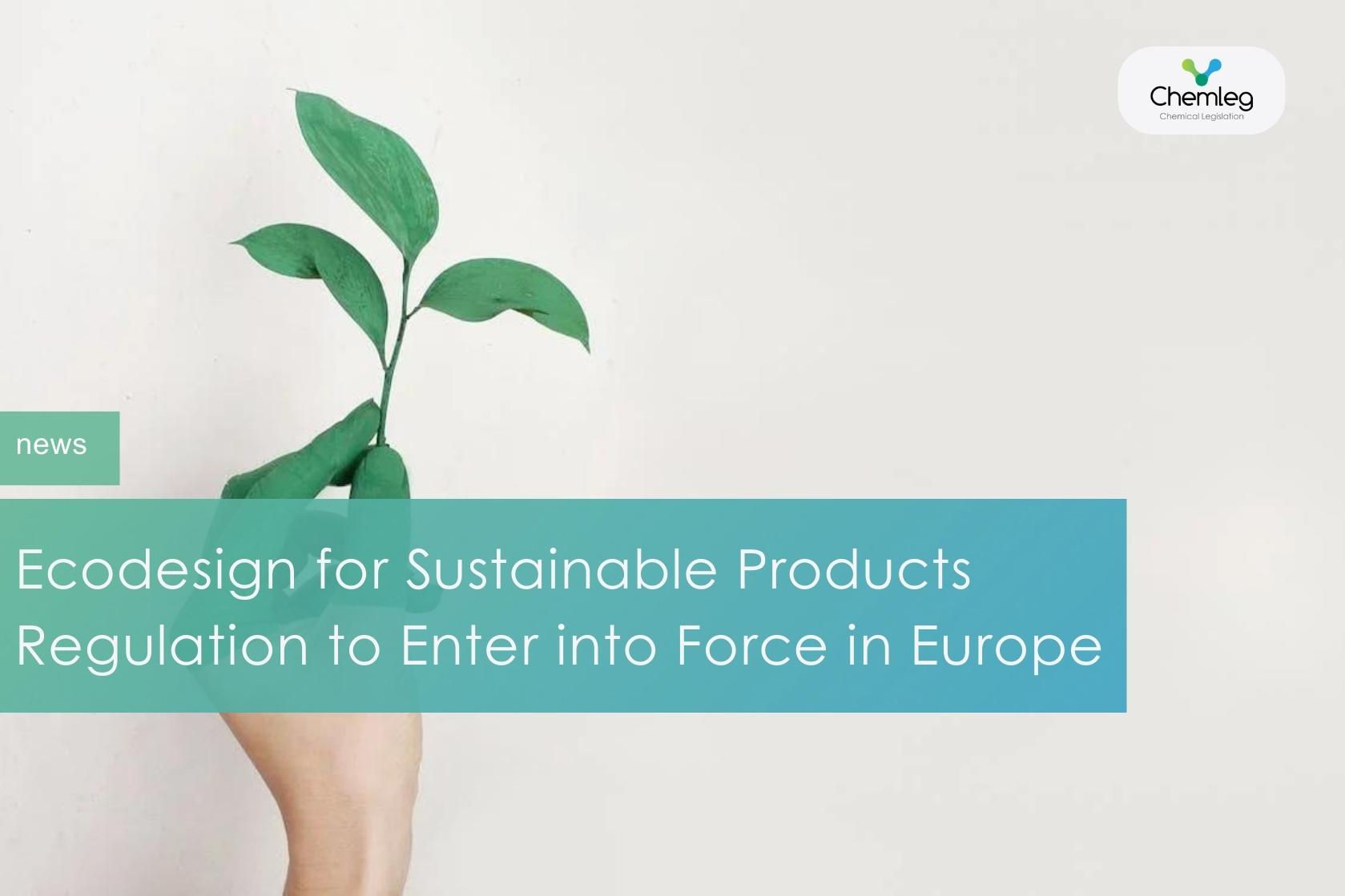
Ecodesign for Sustainable Products Regulation to Enter into Force in Europe
About the Ecodesign Regulation
The Ecodesign for Sustainable Products Regulation, also known as Regulation (EU) 2024/1781, will enter into force on July 18, 2024. This regulation, a cornerstone of the Commission's strategy for more environmentally sustainable and circular products, is a crucial part of the 2020 Circular Economy Action Plan aimed at reducing climate change and pollution by improving product sustainability. By increasing material use circularity and energy efficiency, the ESPR supports the EU's 2030 environmental and climate goals.
The ESPR aims to significantly improve the circularity, energy performance, and other environmental sustainability aspects of products placed on the EU market.
Key features of sustainable products include:
- Reduced energy consumption
- Longer lifespan
- Ease of repair
- Easily detachable and reusable parts
- Fewer hazardoussubstances
- Increased recyclability
- Higher recycled content
- Lower carbon and environmental footprint throughout their lifecycle
The ESPR will replace the existing Ecodesign Directive (2009/125/EC). It establishes performance and information conditions known as "ecodesign requirements" for almost all physical product categories, with some exceptions like food and feed. These requirements include:
- Enhancing product durability, reusability, and reparability
- Making products more energy and resource-efficient
- Addressing substances that hinder circular cycles
- Increasing recycled content
- Facilitating product remanufacturing and recycling
- Setting rules on carbon and environmental footprints
- Improving the availability of information about product sustainability
The ESPR also introduces several new measures:
- Digital Product Passport (DPP):
The ESPR introduces the DPP, a digital identity card for products, components, and materials, storing relevant information to support sustainability and legal compliance. This information will be electronically accessible, aiding consumers, producers, and authorities in making informed decisions. The DPP will include details on technical performance, material origins, repair activities, recycling capabilities, and lifecycle environmental impacts. - Addressing the Disposal of Unsold Products:
The ESPR sets measures for the disposal of unsold products in the EU. Large and medium-sized companies across all product sectors will be required to disclose annual information on their websites regarding the number, weight, and reasons for disposing of products. - Green Public Procurement:
The ESPR will establish mandatory Green Public Procurement criteria for EU authorities purchasing regulated products, helping to direct these funds more sustainably. This has the potential to significantly increase the demand for sustainable products and encourage companies to invest in this area. - Regulation:
The ESPR is an environmental legislation that will progressively develop rules for specific product groups. The process will start with a prioritization exercise, followed by a work plan outlining the products and measures to be addressed. The development of product rules will include inclusive planning, detailed impact assessments, and regular stakeholder consultations through an Ecodesign Forum.
Ecodesign for the Sustainable Products Regulation is a significant step toward a more sustainable and circular economy in the EU. By setting stringent ecodesign requirements, introducing the Digital Product Passport, addressing the disposal of unsold goods, and promoting green public procurement, the ESPR aims to protect the environment, encourage sustainable business models, and strengthen the resilience of the EU economy.
All businesses should prepare for compliance by reviewing their product designs for sustainability, engaging in the consultation process for specific product rules, and integrating Digital Product Passport requirements. Prioritizing energy efficiency and circularity in product development will be crucial.
Reference: 2024/1781 REGULATION (EU) 2024/1781 OF THE EUROPEAN PARLIAMENT AND OF THE COUNCIL of 13 June 2024 establishing a framework for the setting of ecodesign requirements for sustainable products, amending Directive (EU) 2020/1828 and Regulation (EU) 2023/1542 and repealing Directive 2009/125/EC
